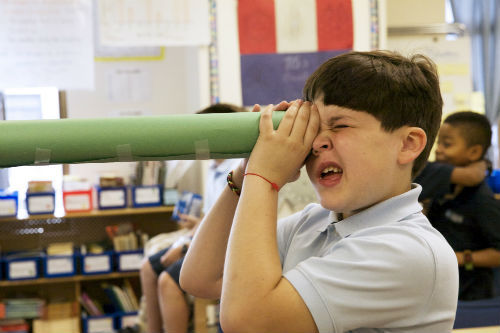
当昆西琼斯被选择以产生 “我们是世界” 在 1985, 当时的想法是,这将是音乐社区捐赠的时间和人才的集体努力为别人危机中的差异. 谁也不会忘记这个世界上最大的记录明星的故事被告知 “检查你的自尊心在门口” – this cause is so much bigger than your celebrity.
Hold that thought and I’ll tell you more about a collective learning event – the Oppi Festival – popping up at Leman Manhattan School in NYC on May 15 和 16. United by a passion for education, talented teachers, 学者, 政策制定者, 企业家, 父母, 学生, and cultural and business leaders will step into each other’s worlds for two days to talk, 做, 使, listen and play with all things about learning. From my personal experience of this global festival last year in Helsinki, bring your best ideas, your best friend and your most comfortable pair of blue jeans.
Many believe we face a crisis in education. According to the International Labor Organization, an agency of the UN, global unemployment stood at 201 million people in 2014, 1.2 million higher than in 2013, and that number is expected to rise to 212 million by 2019. The current worldwide unemployment rate among 15 以 24 year-olds of 13%, which is also expected to increase, is almost 3 times higher than the overall unemployment rate. A mismatch of skills is believed to be a major factor.
Students are the consumers of education. Let’s not make them the casualty. How do we best prepare them for the dramatic socio-economic demands of a digital world in a global age?
Oppi Participant Pasi Sahlberg – @pasi_sahlberg
One issue facing most education systems today is that they are primarily focusing on educating consumers for global labor markets. Growing numbers of these graduating consumers don’t find jobs easily, and some will never find anything that they were initially prepared to do. The expanding number of college degrees in the future leads to the devaluation of formal degrees. They will lose their currency. What education systems should do more than before is to prepare young people, with or without college degrees, to create their own jobs. This requires a different kind of education than what we currently have.
Oppi Participant Siva Kumari – @siva_kumari @iborganization
Some answers lie in the systematic preparation of the student from an early age to synthesize, to think critically, to discern, to communicate, to evaluate data and create knowledge. In the digital era, it’s the responsibility of the adult to educate the student to think critically to convert information into knowledge and not equate the two, to continually learn, and to adapt and to not think of all these tasks as chores but as everyday eventualities. As students are flooded with ever-growing data shared across the world, their ability to critically think through it will become increasingly more important.
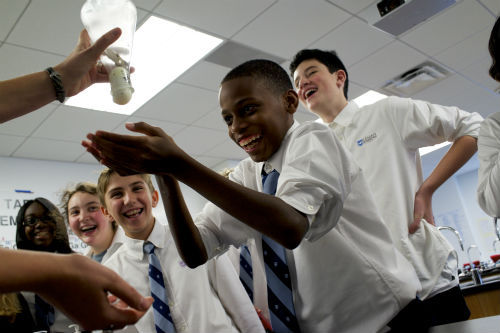
Oppi Participant Andy Hargreaves – @HargreavesBC @BCLSOE
Since the global economic collapse, by comparison with the rest of the population, wealth among the super-rich has doubled but work has not. We need to put wealth to work by distributing it more to increase demand. 如何才能帮助教育? By developing values that reconnect effort with reward; by creating the social capital of citizenship as well as the individual capital of entrepreneurship; and by making play and creativity the entitlement of all children.
Oppi Participant Maarit Rossi – @pathstomath
Can you feel the atmosphere of a school? Watch the interaction between students and teachers. Are students passive or active learners? How does the school support teachers in instructing and reaching learning targets? If the structure of the school day has a few subjects, teachers can support learning for large themes and use a variety of teaching methods. With basic elements, we can grow students self-esteem, flexibility, 好奇心, ability to evaluate, communicate and collaborate, thus preparing them for the unpredictable future.
Oppi Participant Steve Mesler – @stevemesler @ClassroomChamps
Anyone who has ever achieved something in life has failed far more than they’ve succeeded. One’s ability to form relationships with likeminded individuals is a central driver to their success. Our goal is to teach youth that with grit and determination, they can accomplish the goals they set in life, and by utilizing technology to create relationships to people who role model those assets, we will give the next generation the best chance to succeed.
Oppi Participant Kati Koerner – @lctopenstages @nycaier
By the time we’ve devised a system for training workers in the technology of today, the market will have already moved on to new technologies. Our schools need to pair dynamic structures for providing tech training, alongside rigorous and logically scaffolded structures to build young people’s critical and creative thinking skills. We believe that arts education is a key part of that holistic approach. 作为教育者, we need to make sure to infuse tech into our arts and design-thinking into our tech education.
Oppi Participant Jerry Maraia – @JerryMaraia @LemanManhattan
While we can’t know today what the jobs and industries of the future will be, we know there are essential skills that will help students be able to succeed – things like critical thinking, asking questions and problem solving along with flexibility, quick research, 弹性, creativity and on-demand thinking. By building these skills through traditional education and hands-on experiencees, we can prepare young people for the socio-economic demands of a digital world in a global age.
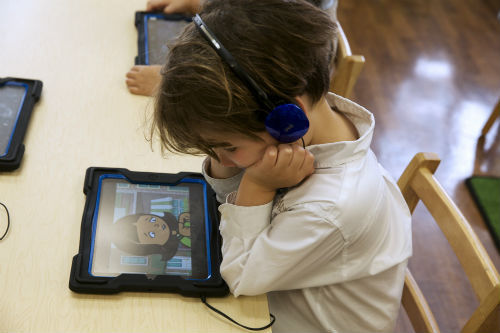
Oppi Participant Former Ohio First Lady Frances Strickland
The current demands of the digital world on our young people will be balanced with the future demand for increased human understanding. As the interest in imagination and creativity grows, learning what motivates people and how to meet their needs becomes fashionable again. Learners will be encouraged to be true to themselves–to know their talents and how they want to use them. Women and girls, using such “软技能” as compassion and love of peace, will be key in building multicultural learning environments – welcoming diversity and working for the well-being and fair treatment of all.
Oppi Participant Erick Gordon – @ErickGordon @TeachersCollege
We need to allow for a culture of education that fosters curiosity, 想像力, and play – support students to become creative problem solvers with the flexibility to see connection across domains. But you can’t simply mandate creative problem solving, and mandate tends to lead the culture of American school reform.
Oppi Participant Saku Tuominen – @sakuidealist
We shouldn´t try to guess the skills needed because most likely we will be wrong. 相反,, our mission should be to educate passionate people who are anti-fragile, who flourish, 无论. For me it boils down to two things: creativity and a growth mindset, a combination of being able to solve problems and move from ideas to implementation. A healthy dose of intrapreneurship is needed in every possible area – something we should teach early on.
Oppi Participant Neelam Chowdhary – @NeelamNY @AsiaSociety
It now matters more how young people can navigate change and ambiguity, how they can think creatively and be flexible in environments that shift and change rapidly, and how they can collaborate across borders of all forms. Helping them develop global competence – 批判性和创造性思维, 同情, 合作, understanding multiple perspectives, informed activism – is a path to what is now ‘real world’ 准备.
Oppi Participant Jon Schnur – @Results4America
Our young people have been incrementally improving their educational achievement and attainment, but we are falling behind some other countries and the higher bar needed for success in a fast pace, globalized, technology-infused world. We have teachers, 学校, colleges and universities that are global leaders in education. But we can get better, faster. At our best, our schools and classrooms can marry the rigor of academic learning with our strengths of innovation and problem-solving so that young people are prepared for good jobs, citizenship and leadership.
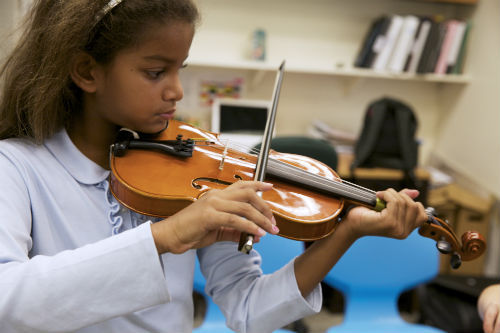
Oppi Participant Steve Moffitt – @a_new_direction @Steve_Moffitt
Can schools really deliver everything we increasingly expect of them – skills for emotional resilience, development of character, cultural education, digital engagement and of course, good academic grades? Are we asking too much and do we need to share responsibility? We believe that fairer distribution and more effective partnership with the web of creative, 科学, 雇主, third sector, and cultural resources that surround schools can help prepare young people for a new and different future.
Oppi Participant Wendy Kopp – @TeachForAll @TeachForAmerica
One of the most fundamental things I’ve learned at Teach For All is that despite the immense differences from place to place, there are remarkable similarities in the challenges the most marginalized children face throughout the world. While this may seem daunting at first, it’s actually good news because it also means that the solutions are shareable. So when a partner in India develops an innovative idea that is showing tremendous results, we can learn from that experience and adapt it to local settings. The power in sharing solutions across borders is immense.
Oppi Participant Gavin Dykes – @gvindk @effdebate
Employment has largely moved from an association with repetitive tasks and compliance, to work involving innovation and creativity, constant thinking, better communications and social awareness. Our relationship with knowledge has shifted from recall to search, assimilation and application. Can we encourage new social enterprise and small business to improve our communities and environment, and to increase the desirability of sustainable living?
Oppi Participant Kevyn Klein – @edmodo
The plethora of mobile devices enables a new mode of communication and discovery; an opportunity to learn from those outside familiar geographic borders and to impact the world. By encouraging today’s youth to collaborate with others and think critically, there can be such a tremendous wealth of knowledge-sharing and learning that results in innovations yielding unthinkable, positive change.
Oppi Participant Christopher Wisniewski – @MovingImageNYC
作为教育者, we have a responsibility to prepare young people for a future where how you know is as important as what you know. That requires a pedagogical approach that supports different kinds of learners in the development of hard and soft skills and a focus on the application, not simply the acquisition, 知识. At a system wide level, it also means we have to look at building talent pipelines that will ensure we’re fostering a workforce built on values like creativity, 合作, 创新, 和多样性. Those values are more than just social goods; they’re at the cornerstone of the new global economy.
Join a World of Learners on May 15 和 16: http://2015.oppifestival.com/line-up/ @OppiFestival
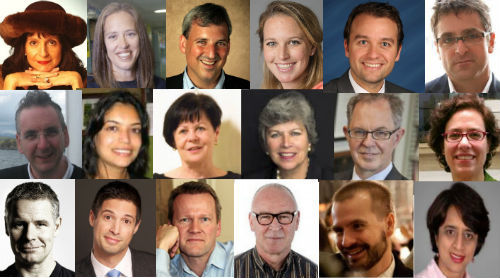
(All photos are courtesy of Leman Manhattan Preparatory School)
和我一样,全球知名的思想领袖,包括迈克尔·巴伯爵士 (英国), 何. 迈克尔座 (美国), 何. 莱昂特司特因 (美国), 克莱克里斯坦森教授 (美国), 何. 琳达·达林 - 哈蒙德 (美国), 何. MadhavChavan (印度), 迈克尔·富兰教授 (加拿大), 霍华德·加德纳教授 (美国), 安迪·哈格里夫斯教授 (美国), 伊冯娜赫尔曼教授 (荷兰), 克里斯汀Helstad教授 (挪威), 让·亨德里克森 (美国), 玫瑰Hipkins教授 (新西兰), 科妮莉亚Hoogland教授 (加拿大), 这位杰夫·约翰逊 (加拿大), 太太. 尚塔尔考夫曼 (比利时), 何. EijaKauppinen (芬兰), 国务秘书TapioKosunen (芬兰), 多米尼克·拉方丹教授 (比利时), 休·劳德教授 (英国), 主肯麦克唐纳 (英国), 杰夫大师教授 (澳大利亚), 巴里McGaw教授 (澳大利亚), 希夫纳达尔 (印度), Ř教授. 纳塔拉詹 (印度), 何. 吴PAK (新加坡), 何. 丹尼斯教皇 (美国), 斯瑞达拉贾戈帕兰 (印度), 何. 黛安·拉维奇 (美国), 理查德·威尔逊·赖利 (美国), 肯·罗宾逊爵士 (英国), 帕西SAHLBERG教授 (芬兰), 押尾佐藤教授 (日本), 安德烈亚斯·施莱歇 (PISA, 经合组织), 何. 安东尼·塞尔顿 (英国), 何. 大卫·谢弗 (美国), 何. 基尔斯滕都沉浸式 (挪威), 总理斯蒂芬·SPAHN (美国), 伊夫Theze (LyceeFrancais美国), 查尔斯Ungerleider教授 (加拿大), 托尼·瓦格纳教授 (美国), 大卫·沃森爵士 (英国), 迪伦Wiliam教授 (英国), 何. 马克沃莫尔德 (英国), 西奥Wubbels教授 (荷兰), 迈克尔·杨教授 (英国), 和张民选教授 (中国) 因为他们探索所有国家今天面临的大画面的教育问题.
全球搜索教育社区页面
ç. M. 鲁宾是两个广为传诵的在线系列,她接受了笔者 2011 厄普顿·辛克莱奖, “全球搜索教育” 和 “我们将如何阅读?” 她也是三本畅销书, 其中 真正的爱丽丝梦游仙境, 是的发行 CMRubinWorld, 而且是干扰物基金会研究员.
按照ç. M. 鲁宾在Twitter: www.twitter.com/@cmrubinworld


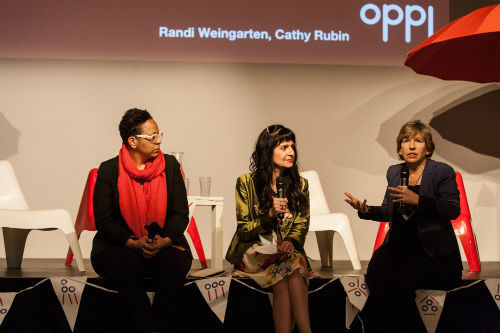

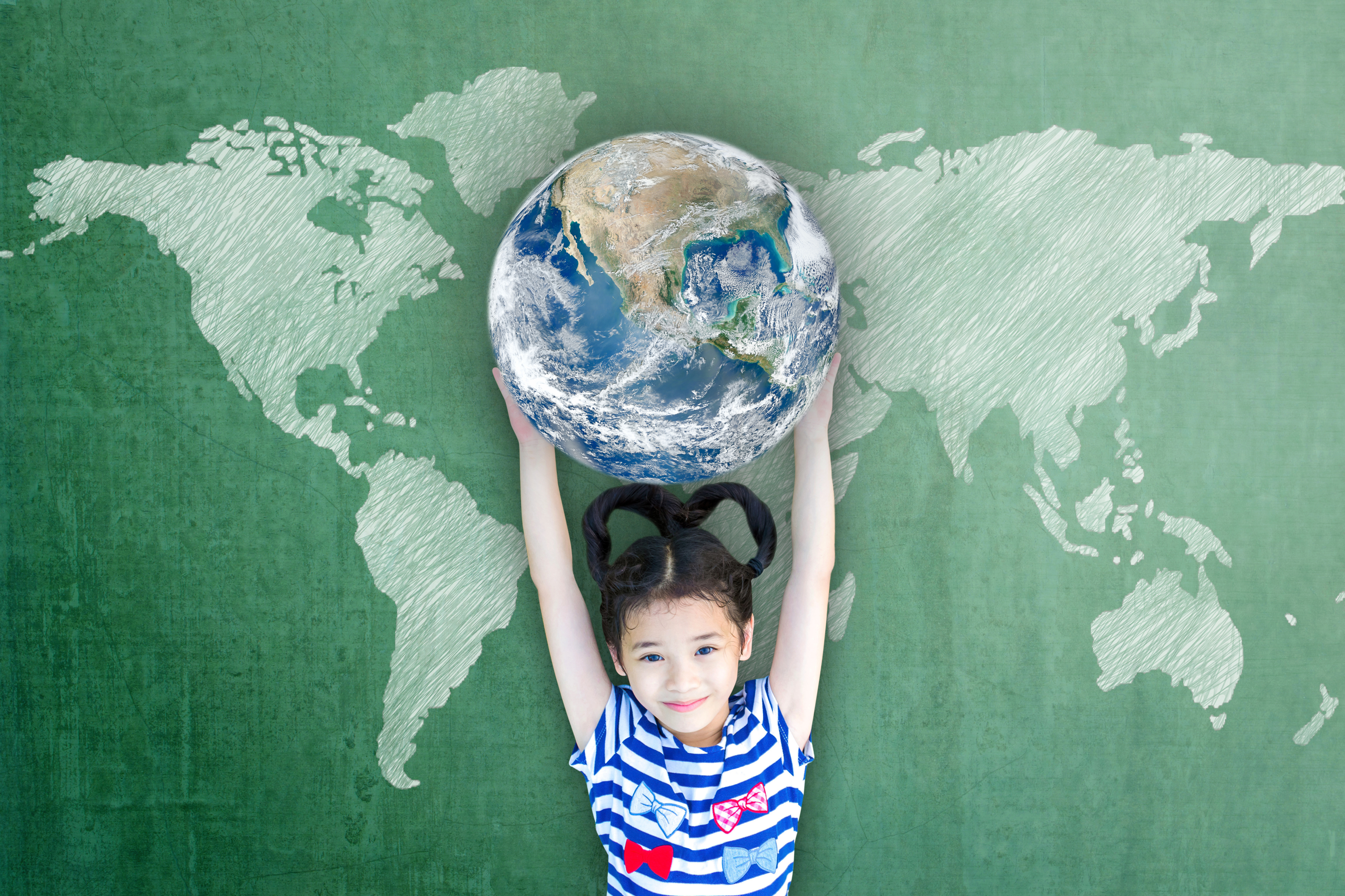

最新评论